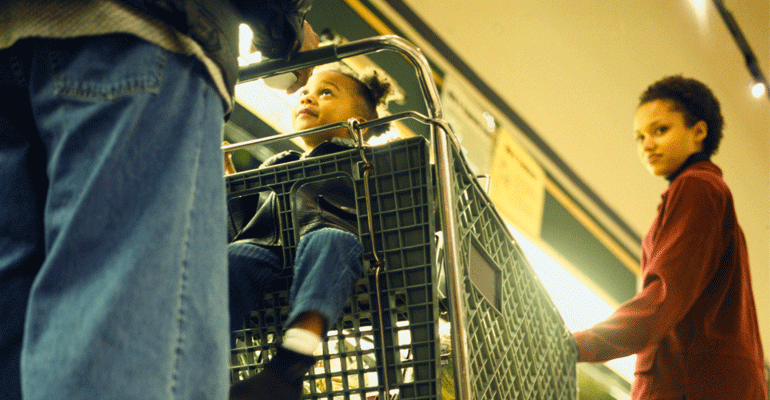Learning to discern the motives of people who approach you is crucial to you and to your children when you’re raising a child of another race. Children notice both your response and your attitude in such public situations. Your reactions will inform their feelings about people of their race as they grow.
Its not uncommon, for example, for parents of African-American children to be approached, in what is almost always a genuine attempt to help, by women suggesting hair products or advice. If this happens to you, you might ask yourself whether you could use help with your child’s hair.
You might laugh and say, “Thanks, she is having a bad hair day. I can use all the help I can get.” Or, “Well, I usually use ______ on her hair. How is ______ better?” Such openness might lead to a friendship, or at least to a resource that you otherwise may have never known about.
Discuss what happened after such an encounter. An appropriate comment for a young child may be, “Wasn’t it nice of that woman to help Mommy pick out something to make your hair look even more beautiful?”
Different Perceptions of Adoption
Transracial adoption is still a curiosity in many communities of color, so opinions and perceptions will vary widely. Some people have strongly negative feelings about white parents adopting their children, and sense inherent racism in a system that allows transracial adoption. Others are simply grateful that children find loving homes, regardless of the adoptive parents’ race.
You and your child will probably experience many similar encounters. Stories I’ve heard from adoptees and adoptive parents range from being politely asked why they/their child does not speak their/the child’s native language to being scolded for their lack of fluency.
As illogical as it seems, comments like these may come from adults who know that your child was adopted; language is so important that they cannot imagine how a child learns to appreciate his birth culture without being fluent.
I frequently experience this when I travel in Korea. My colleagues know that I was adopted, and yet they constantly ask if I speak Korean. Or, worse, they assume that I do, and they look dismayed when they realize that we wont be able to communicate freely in the language. A gentle reminder that your children were taught English at home and at school should be sufficient.
Recognizing Our Limitations
When you are approached by someone of the same race or culture as your child, assume that he or she is trying to be helpful. Listen to what that person has to say, and ask questions. She has reached out to you, either out of curiosity or genuine concern. This is an opportunity to create a better understanding of transracial adoption, or maybe to make a new friend.
In a recent discussion I had with a group of adult adoptees, the consensus was that they were not prepared to be people of color. Many knew other adoptees, or had attended a culture camp, but they had never truly participated in their cultural community. It was a rude awakening for many when they left home and, for the first time, were viewed as a minority and treated as such.
There are so many things we want to teach our children. Unfortunately, we may not always be the best resource for them. Knowing our limitations and helping our children find resources–or accepting an offer of help or friendship when it comes our way–is sometimes the best thing we can do. You may have to make your own village to help you raise your child.



